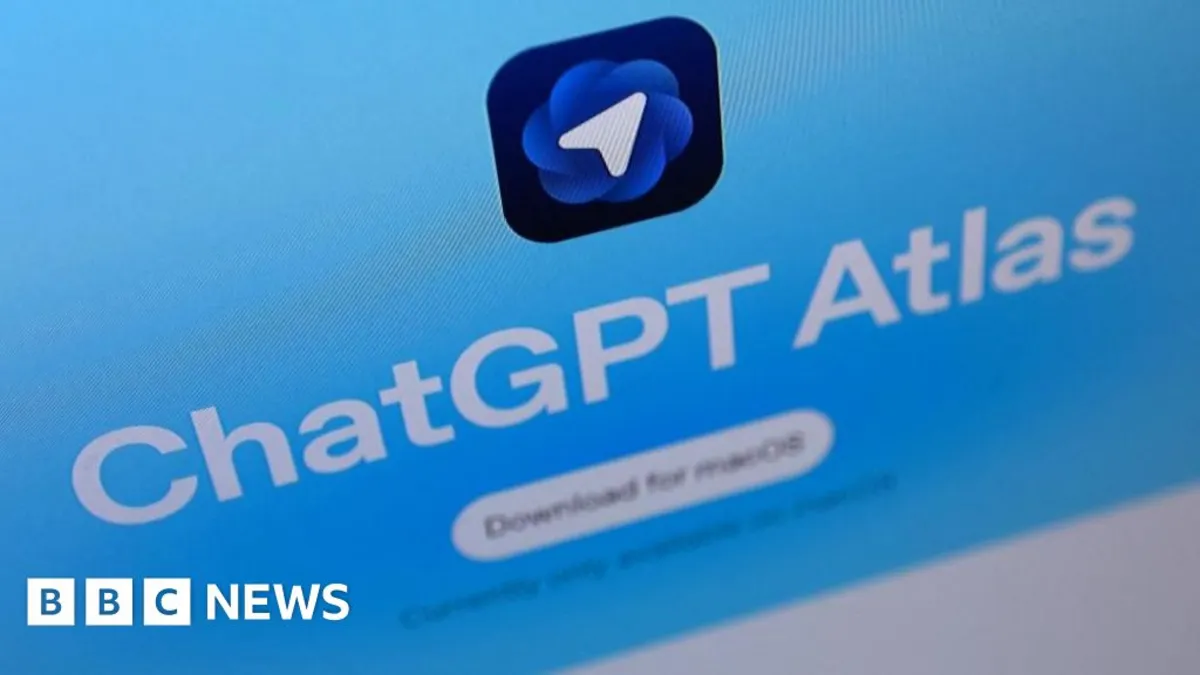
OpenAI, the creator of the popular ChatGPT, has officially launched an innovative web browser named ChatGPT Atlas. This new browser aims to provide a competitive alternative to established players like Google Chrome, which remains the world's most widely used web browser. Available on Apple's MacOS, ChatGPT Atlas introduces a unique browsing experience by eliminating the traditional address bar, a staple feature of most web browsers. According to OpenAI's CEO, Sam Altman, the browser is designed around the capabilities of ChatGPT, reflecting the company's commitment to integrating artificial intelligence into everyday tools.
The introduction of Atlas aligns with OpenAI's strategy to explore new revenue streams as it seeks to capitalize on its substantial investment in artificial intelligence (AI). The company is also launching a premium feature known as the paid agent mode, which will allow users to conduct autonomous searches using the ChatGPT chatbot. This feature will be exclusive to paying subscribers of ChatGPT, enhancing the user experience by tailoring searches to individual browsing contexts for improved speed and relevance.
As part of its broader strategy to attract and retain users, OpenAI has secured partnerships with various e-commerce platforms, including Etsy and Shopify, as well as travel booking services like Expedia and Booking.com. These collaborations aim to drive more traffic to OpenAI's online services and create a seamless experience for users looking to shop or book travel directly through the browser.
During OpenAI's recent DevDay event, Sam Altman announced that ChatGPT has experienced remarkable growth, reaching 800 million weekly active users, doubling from 400 million just a few months earlier in February, as reported by research firm Demandsage. This surge in user engagement underscores the increasing reliance on AI tools for everyday tasks, including searching for information online.
Industry experts have mixed feelings regarding ChatGPT Atlas's potential to disrupt the market. Pat Moorhead, CEO and chief analyst at Moor Insights & Strategy, expressed optimism that early adopters would be eager to explore the new browser. However, he voiced skepticism about its ability to significantly challenge established browsers like Chrome and Microsoft Edge. Moorhead suggested that mainstream users, especially beginners and corporate clients, may prefer to wait for their familiar browsers to integrate similar AI capabilities, noting that Microsoft Edge already offers many of these features.
OpenAI's entry into the browser market comes amid evolving trends in online search. A recent report by research firm Datos highlighted that as of July, 5.99% of searches conducted on desktop browsers were being performed using large language models (LLMs) like ChatGPT, more than double the percentage from the previous year. This shift suggests a growing preference among internet users for AI-driven search solutions. Meanwhile, Google is also heavily invested in AI, focusing on delivering AI-generated answers to enhance its search results.
As OpenAI continues to innovate with ChatGPT Atlas, the competition in the browser market is set to intensify, potentially reshaping how users interact with the internet and leverage AI for their search needs.